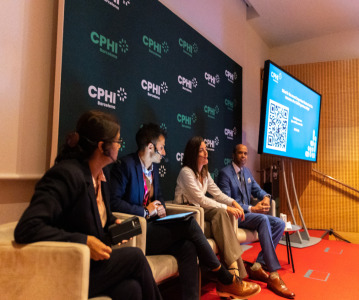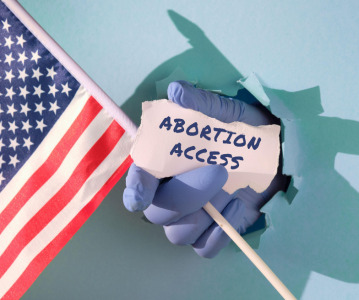Indian Industry Decries Smear Campaign Against its Pharma Exporters

The India Brand Equity Foundation (IBEF), on behalf of the Government of India, has taken strong objection to a smear campaign being orchestrated by the Washington-based American Enterprise Institute (AEI) against the whole Indian pharmaceutical industry. It seems that the effort is to tarnish the image of the Indian pharma industry which it has painstakingly developed over the years and is often recognised as “Pharmacy of the World”.
In the latest instance, AEI has published the findings of a 'study' as a working paper in the National Bureau of Economic Research (NBER) Working Paper series. The study has not been reviewed by any of the authors’ peers as is the gold standard in serious academic publishing. The study cites anecdotal evidence and hearsay, quoted earlier in the author’s other publications, as facts with established academic provenance. Cleverly, the Board of NBER distances itself from the contents of the report; yet parts are being reproduced under NBER’s name to give it credibility which is completely being otherwise.
The study claims to assess “the quality of 1470 antibiotic and tuberculosis drug samples that claim to be made in India and were sold in Africa, India, and five mid-income non-African countries” based on samples “from pharmacies in 22 cities of 18 low- to mid-income countries between 2009 and 2012.” The conclusions of the study are disputed not only for methodology and ethics, but also for the poor treatment of data sampling used.
“Quality is one of the major focus for pharmaceutical exports from India. Indian companies meet the quality requirements of all our importing countries. India looks at healthcare as a holistic issue rather than just commercial business,” said Mr Sudhanshu Pandey, Joint Secretary, Department of Commerce, Government of India.
Commenting on the conclusions, Mr D.G. Shah, secretary general of Indian Pharmaceutical Alliance (IPA), an industry body of 20 research-based Indian pharmaceutical companies: “The study recognises that products with “Made in India” label may not be actually made in India. The study also recognises that transportation and storage conditions could have affected the quality of products. But ignoring these realities, it still attributes poor quality (of drugs at the consumer end) to manufacturers and the Indian pharma regulator.” This is not only strange, but reflects of a smear campaign with an ulterior motive rather than actually being concerned about quality issues.
Faulting the study for its methodology, Mr Shah notes: “The samples were collected between 2009 and 2012. But the study does not clarify as to when and where the samples were tested and why it took 2 years to write the report.”
Pharmexcil India Director General, Dr P.V. Appaji has protested the lack of ethics in the study. “There seems to be a deliberate campaign to malign the Indian pharma industry. The minimum requirement would be to give an opportunity to the labelled manufacturers to give their comments against their test observations.”
Without regard to ethics, data collection and sampling techniques or even the primary protocols involved in publishing such research, the authors have made several allegations passing off as statistical conclusions from the so-called study. It is not known whether they have selected the test sample on a rational basis keeping in view the huge volumes of generics shipped from India or from a select few companies. It is surprising to note how they could identify the products as unregistered. If they are known to be unregistered, it is possible that small quantities might have entered market channels from local or other than Indian sources. In all fairness, when such results are found, they should have also contacted Pharmexcil or Indian drug regulator in advance and ascertained the facts. By disclosing the results of their test after about 2 years, they have forbidden the manufacturers even to test/retest their reference/control samples as maintained by them under Drugs and Cosmetics Act of India. Majority of them would have crossed 'date of expiry ' as shown on the labels.
In fact, Pharmexcil’s Dr Appaji points out at least eight technical issues with the sampling and data techniques. Some of these are
• Samples are not authenticated either from the source or from the regulators of the local country.
• Samples were not referred to manufacturers to ascertain their genuineness.
• Minilab protocols are used to analyse the drugs, which is not taken as conclusive analysis.
• The authors have not recorded or stated about the storage conditions at which samples were stored and collected.
• Samples drawn from Africa are not registered in their country.
• Authors have not ascertained the source of supply of the drug and not indicated in the report. They directly pointed out that they are from India.
• The names of the manufacturing firms were not disclosed.
• The study fails to indicate the reference standards used.
“On the above observations, the report has no value on the face, but they have published this report to damage the image of India in the international market,” Dr Appaji said.
IPA’s Mr Shah points out that the internal inconsistencies in the report has been designed to “pass off pre-conceived notions and a hidden agenda in the garb of a scientific study.” For instance, Shah notes that “of the 1470 samples tested, 91% “passed” for India (according to the template set out by the authors), 83.7% for Africa, and 95.2% for non-Africa (China, Brazil, Russia, Turkey and Thailand). However, it tested only one product (Ciprofloxacin) for non-Africa to conclude that quality of product in non-Africa were better than for India.”
AEI is an independent, non-profit organization, supported primarily by grants and contributions from foundations, corporations, and individuals. According to the disclaimer clauses in the study, “The Legatum Institute funded the collection of medicines and testing and a grant from the Social Sciences and Humanities Research Council of Canada provided subsequent funding to cover analysis of drug samples.” Realising the serious damage that such an irresponsible report is trying to make, the pharma industry has asked the Government of India to initiate legal proceedings against all concerned.
Related News
-
News Women in Pharma: Our hopes for 2025 and beyond
Our last instalment for 2024 of the Women in Pharma series brings you messages direct from the Informa Markets CPHI team as they discuss the advice and insights they have carried throughout their roles working at CPHI, and what they hope to see for the... -
News CPHI Milan 2024 - From the Floor
Milan and CPHI welcome you to 2024 CPHI Milan! As we celebrate the 35th edition of our flagship CPHI show, editors Vivian Xie and Lucy Chard bring you the latest from the show floor, conference sessions, and innovative solutions from all exhibitors, at... -
News The BIOSECURE Act: implications for the pharma supply chain
On September 9, 2024, the US House of Representatives voted to pass the bill titled the BIOSECURE Act (the Act), which lists several Chinese companies in the pharmaceutical supply chain. The Act will prohibit American companies from contracting or doin... -
News A Day in the Life of a Global CDMO Chapter Lead – Manufacturing
The 'Day in the Life of' series has covered many aspects of the pharmaceutical pipeline, including R&D and procurement, now we're taking a look at manufacturing from a global CDMO perspective. -
News CPHI Milan Speaker Spotlight: CDMO relations with Pharma and Start-Ups
In the run-up to CPHI Milan, we sit down with some of the experts and thought-leaders speaking at this year’s conferences. -
News Women in Pharma: Advocating for trans healthcare in pharma
In our monthly series on women in the pharmaceutical industry, we interview leading experts in the pharmaceutical supply and value chain to discuss the importance of gender diversity in healthcare, the workplace, and beyond. -
News Updated – Changing abortion pill access according to the US FDA and Supreme Court
After the approval of the medical abortion pill, mifepristone, by the US FDA, states across the USA approach the distribution of the pill differently, some ruling against allowing access to the drug. -
News CPHI North America 2024 – From the Floor
Welcome to Philly! CPHI North America once again graces the Philadelphia Convention Center, 7–9 May 2024.
Recently Visited
Position your company at the heart of the global Pharma industry with a CPHI Online membership
-
Your products and solutions visible to thousands of visitors within the largest Pharma marketplace
-
Generate high-quality, engaged leads for your business, all year round
-
Promote your business as the industry’s thought-leader by hosting your reports, brochures and videos within your profile
-
Your company’s profile boosted at all participating CPHI events
-
An easy-to-use platform with a detailed dashboard showing your leads and performance
.png)




.png)

